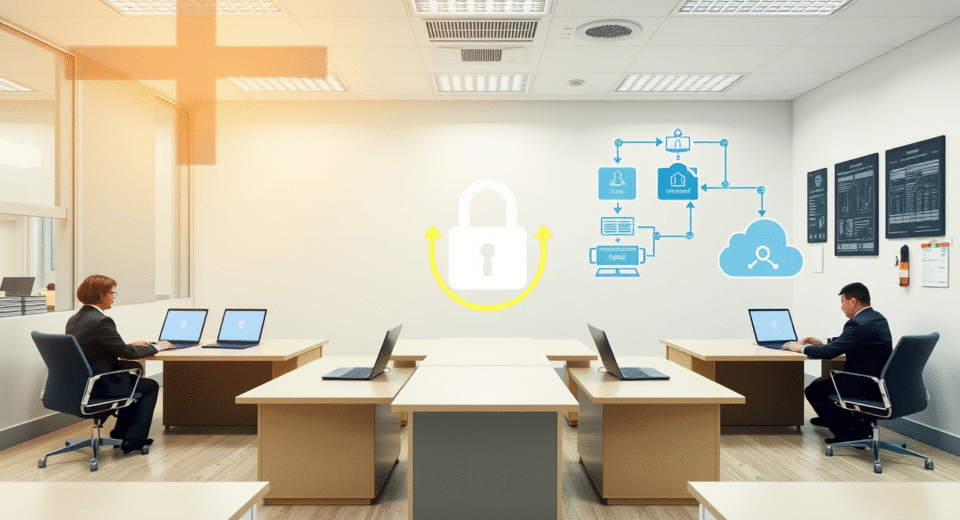How to Secure a Curaçao License Under the New Rules (2025 Guide)
Introduction: Curaçao Grows Up—Finally For years, a Curaçao license was seen as the “easy mode” for iGaming operators: low cost, fast approval, minimal oversight. But in 2025, the narrative has shifted. The Curaçao government—under pressure from the EU, Financial Action Task Force (FATF), and international watchdogs—has completely overhauled its licensing regime. Gone are the shady sub-license systems. In are direct licenses, AML audits, KYC standards, and transparency measures that rival Tier 1 jurisdictions. If you’re planning to secure a Curaçao license in 2025, this guide will walk you through everything—step-by-step—under the new rules. Why Choose Curaçao (Even Under Stricter Rules)? Curaçao is no longer the wild west of gaming licenses—but it still offers real advantages: The Major Change: Direct Licensing Is Now Mandatory Since September 1, 2024, sub-licenses are no longer valid. All operators must apply directly to the new Curaçao Gaming Control Board (GCB) under the updated legislation—the National Ordinance for Games of Chance (LOK). If you’re currently operating under a master license, you must transition to a direct license or risk being shut down. Step 1: Choose the Right License Type Under the new Curaçao regime, there are two core license types: License Type Who It’s For B2C Operator License For casino/sportsbook operators serving end users B2B Supplier License For software providers, aggregators, payment processors A B2C license includes casino games, sports betting, lottery betting, and skill games. Each vertical requires specific technical documentation. Step 2: Incorporate a Local Entity in Curaçao You must establish a Curaçao-based entity—not just a shell company. This requires: Most startups engage a licensed Corporate Service Provider (CSP) who can bundle company formation, local directors, and office setup. Step 3: Prepare Your Documentation The application process is far more comprehensive under the LOK. You’ll need: 1. Corporate Documents 2. Personal Due Diligence 3. Business Plan 4. Technical Documentation Step 4: Submit the Application to the GCB How to Apply: Licensing Fees (2025): Fee Type Amount (USD) Application Fee $5,000 (non-refundable) Annual License Fee (B2C) ~$25,000 – $35,000 Key Person Licensing $1,500 per person Compliance Audit (annual) Variable, avg $10,000 ⚠️ Note: The GCB has discretion to reject applicants who do not demonstrate robust AML and RG policies. Step 5: Undergo a Compliance Audit Before going live, you’ll be subject to a pre-launch audit. This includes: 🛡️ The GCB is prioritizing player protection, AML monitoring, and transparency—expect to show evidence of affordability checks and automated fraud detection. Step 6: Launch Under Oversight Once approved, your license is valid for 5 years, with annual reviews. Your obligations include: Operators found to be offering services in restricted jurisdictions (e.g. US, Netherlands) without permission will be blacklisted and penalized. Crypto & Curaçao: What’s Allowed in 2025? Curaçao remains crypto-friendly, but not crypto-blind. Under the new rules: ✅ You can accept crypto (BTC, ETH, stablecoins)✅ You must partner with registered fiat ramps or exchanges✅ All crypto players must undergo full KYC/AML✅ No anonymous wallets or mixer-based deposits 💡 Bonus Tip: Consider integrating AML-compliant tools like Chainalysis or Elliptic to monitor crypto flow. How Long Does It Take? With the new system in place, the average licensing timeline in 2025 is: Stage Time Estimate Company Setup 2–3 weeks Document Prep 2–4 weeks Application Review 6–10 weeks Audit + Final Review 3–6 weeks ⏱️ Total Time: 3–5 months (if you prepare thoroughly) Common Mistakes to Avoid ❌ Submitting incomplete documents❌ Listing fake key personnel or using shadow directors❌ Not documenting AML and KYC systems❌ Offering untested or uncertified games❌ Targeting blacklisted countries without geo-blocking 🧠 Pro Tip: Use a compliance consultant or legal team experienced in Curaçao’s new framework. 2025 is not the year to cut corners. Comparison: Curaçao vs. MGA vs. Isle of Man Feature Curaçao (2025) Malta (MGA) Isle of Man Cost ✅ Lower ❌ Higher ❌ Higher Crypto-Friendly ✅ Yes ⚠️ Limited ✅ Yes Approval Time ✅ 3–5 months ❌ 4–6 months ❌ 5–7 months EU Market Access ❌ Indirect ✅ Direct ❌ Limited Regulation Level 🟡 Moderate 🟢 High 🟢 High Curaçao’s new rules strike a balance between flexibility and compliance—perfect for startups and crypto-native operators. Conclusion: Curaçao 2.0 Is Legit—and Worth It 2025 marks a new era for Curaçao as it transforms from a licensing loophole into a legitimate, regulated hub for serious operators. If you’re looking for a faster route to market, want to operate legally in crypto and grey markets, and can meet the new transparency demands, securing a Curaçao license under the new regime is a smart move. Just be ready to play by the new rules.








